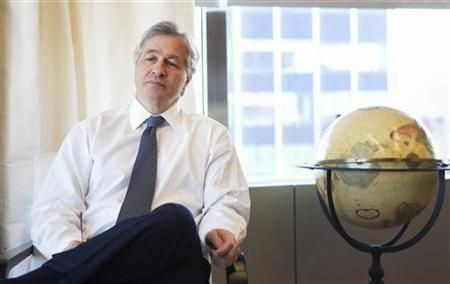U.S. Stocks Greet Third Quarter Earnings, Financials May Hurt

U.S. stocks will face the third quarter earnings season next week.
Alcoa (NYSE:AA) will report on Tuesday, PepsiCo (NYSE:PE) will report on Wednesday and JPMorgan Chase (NYSE:JPM) and Google (NASDAQ:GOOG) will report on Thursday.
Some investors are hoping that U.S. earnings will take center stage, shift focus away from the European debt crisis and potentially prolong the current mini-rebound in U.S. stocks.
Last week, the S&P 500 Index climbed 2.1 percent, the Dow Jones Industrial Average rose 1.7 percent and the Nasdaq Composite rallied 2.7 percent.
However, U.S. stocks may not be able to escape bad news from the financial sector, in both the U.S. and Europe.
Stock picker and MSN Money contributor Jim Jubak expects U.S. financials to be hit "from every direction" and "deliver disappointing earnings for the third quarter."
He cited the Federal Reserve's "Operation Twist," which flattens the yield curve (banks generally make money from a steep yield curve on the "borrow short, lend long" principle).
Moreover, global deal flow and corporate financing activity have slowed down, according to Jubak.
He does, however, expect the technology sector to deliver good earnings results, citing modest expectations and healthy balance sheets.
Meanwhile, the U.S. stock market is unlikely to escape the influence of Europe, even during the U.S. earnings season.
There is no getting around what the European debt crisis is threatening: a global banking crisis.
The global banking system has trillions of dollars in exposure to peripheral European debt.
Douglas Ramsey, chief investment officer at Leuthold Group, told Bloomberg TV that the European debt crisis and its impact on the financial system will likely take the S&P 500 down to about 975 in three to eight weeks.
He said the crisis is not over and expects Europe to produce a "couple [more] waves of panic" and drive global risk assets down.
Ramsey, however, does not expect a double-dip economic recession.
In the post-2008 to 2009 financial crisis period, the U.S. financial system has mostly outperformed the underlying economy, a fact that Fed Chairman Ben Bernanke often alluded to.
Come the next quarter or two, however, financials may prove to be a drag on the markets and economy.
E-mail Hao Li at hao.li@ibtimes.com.
For more useful global markets information, visit ibtimes.com/sections/global-markets.
© Copyright IBTimes 2025. All rights reserved.





















